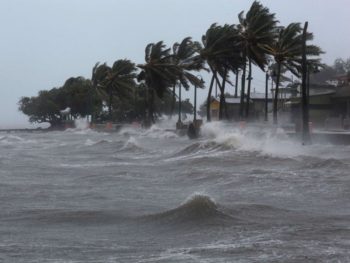
Britain is sending a military vessel to assist victims of Hurricane Irma in the Caribbean and is assigning £12 million ($15.7 million, 13 million euros) in aid, the government said Thursday.
“We are pulling out all the stops to make sure that we can do our utmost to bring urgent assistance,” Alan Duncan, a junior foreign minister, told parliament.
Hurricane Irma — one of the most powerful Atlantic storms on record — has severely hit the Caribbeans, claiming at least nine lives and turning the tropical islands of Barbuda and St Martin into mountains of rubble.
The British fleet auxiliary boat RFA Mounts Bay is already in the Caribbean and “should reach the affected territories later today,” Duncan added.
He also said that the Department for International Development (DFID) and the Foreign Office were on “full alert” and doing their “utmost” with a “great wealth of expertise to deploy on this”.
Charter flights tasked with delivering additional supplies as appropriate also stand ready.
In a statement released later on Thursday, Foreign Minister Boris Johnson reaffirmed the UK’s commitment to respond to the “catastrophic damage” caused by Irma.
“What we will be doing now is making an urgent assessment of the further needs of communities in the British Virgin Islands and Anguilla to see what more can be done in terms of financial and humanitarian assistance,” he added.
Prime Minister Theresa May also held a phone conversation with French President Emmanuel Macron, during which they agreed to coordinate their responses.
“They agreed to cooperate closely, including with the Dutch, to understand the extent of the damage and to coordinate our relief efforts,” a spokesman for the premier’s office said.
Irma was packing maximum sustained winds of up to 185 mph (295 kph) as it followed a projected path that would see it hit the northern edges of the Dominican Republic and Haiti on Thursday, continuing past eastern Cuba before veering north for Florida.
